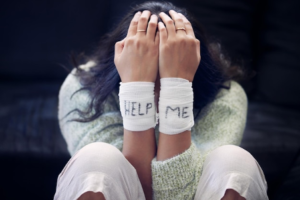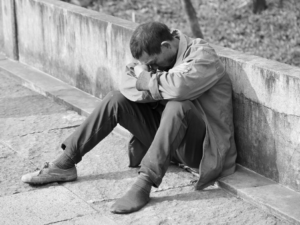The fear of being judged is considered one of the issues that has contributed to members of the community not approaching the church to deal with their mental health challenges, although Christians are expected to show love and compassion.
Pointing to the fact that sometimes people just need a listening ear, medical practitioner Dr. Arlene Blake-McCain feels the church should be willing to engage in dialogue with those who are burdened by their personal situations.
“There has to be openness; there should be no judgement, because what tends to happen is persons do not approach members of the church, whether elders or not, on any issue at all because they feel that they will be judged, and with that, they sit with their problems and it festers until it gets worse, and then the next thing you see they are on the streets,” she said during last week’s second staging of Freedom Talk.
She noted that churches are uniquely placed in communities across the island. This access to the community often places them in an advantageous position to prevent mental illnesses by intervening from early.
“Love is what we lack now. Persons feel abandoned; they feel alone; they feel as though there is nobody to speak with,” said the doctor, whose hashtag for this year is #IAmHealth. She encourages churches to identify mental health practitioners in their congregation that can offer their services to the community.
Dr. Yvonne Munroe, who worked for several years with the Ministry of Health and Wellness, noted that the de-stigmatisation of mental health has been a focus for the Ministry.
“We are encouraging persons who are mentally ill to share their stories,” said the medical doctor, who also encouraged them to write in a journal and exercise to relieve stress.

Dr. Donovan Thomas, co-founder of Choose Life International (CLI), encourages church leaders to also help de-stigmatise mental illness by sharing their personal stories of triumph over adversity.
“We have to be willing to tell our own stories of encounters of which we have been set free, so that those around us can draw hope from our stories, that we were down in the doldrums and that we have come through,” he said.
Dr. Thomas, who founded CLI with his wife Faith, said said they use the bio, psychosocial, and spiritual models to address mental illness. He noted that Jesus has already paid the price for our wellness or well-being, physically, emotionally, and spiritually, and encourages churches to be more deliberate about putting in programmes that will connect with people where they are.
“We see the model of Jesus as he went out into the communities; as he looked at the people, he was moved with compassion,” he said.
Peta-gaye Forbes- Robinson, whose son is on the autism spectrum, finds that compassion is sometimes lacking in medical facilities and, in some cases, in the church.
“The scripture speaks [that] we ought to love our neighbour as ourselves. I believe that we, as a church, the ecclesia body, we have stepped out of alignment with the fullness of that statement: love thy neighbour as thyself. We tend to live or to thrive on that precept that it ought to be persons of familiarity—persons we are familiar with; persons who we love; persons we can stand being around, but the fullness of the meaning really speaks to your neighbour being anybody; it can be your enemy, even persons that are out there in smelly clothes [and] mental,” she said.
The mother documented several cases where she sought treatment for either herself or her son at a medical facility and received a response that lacked compassion. During the COVID-19 pandemic, for example, her son had a challenge accessing certain facilities because he was required to wear a mask. It was difficult to put one on him because of his temperament, but oftentimes, the workers insisted on this being done in keeping with the rules.
“It’s not to say that Christians are not within these medical offices [because] Christians are within the health care centres,” she said before adding, “It’s just that they have somehow stepped aside from them being a deacon or whatever they have at their church and now have stepped into the atmosphere of working within the facility and abiding by the rules within the facility. So we have become scripted, so much so as to not remember that we ought to love our neighbours as ourselves.”






